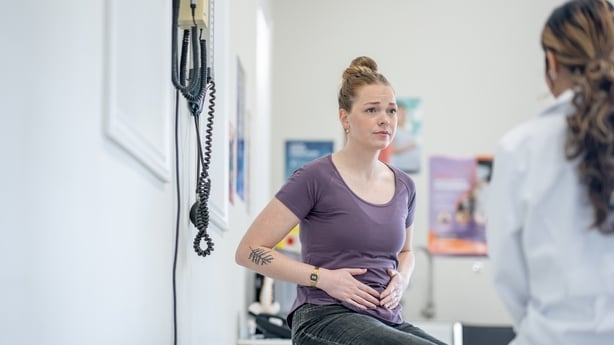American actor James Van Der Beek, 47, has announced that he has been diagnosed with colorectal cancer.
In an interview with US publication People Magazine, the Dawson Creek star said: "I have colorectal cancer. I’ve been privately dealing with this diagnosis and have been taking steps to resolve it, with the support of my incredible family."
The actor also acknowledged his diagnosis on an Instagram post to his 1.5 millions followers, where he apologised to his loved ones who had learned about his cancer through the press.
But what is colorectal cancer? And what symptoms should we all look out for?
What is colorectal cancer?
"Colorectal cancer is a cancer that starts in the large bowel (colon) and the back passage (rectum)," explains Amy Hirst, health information manager at Cancer Research UK. "It is also known as bowel cancer."
According to the HSE, around 2,600 people are diagnosed with bowel cancer in Ireland every year. It is the second most common of all cancers in men and the third most common of all cancers in women in Ireland.

What are some common misconceptions about it?
Many people think that bowel cancer only affects older people, but this is not the case.
In Ireland, you will be offered your first bowel cancer screening home screening test between your 59th and 61st birthday. Then you will be offered a home test every two years. You need to be on the bowel screening register before you're offered a home screening test.
What causes it?
"We don’t know what causes most bowel cancers but we know that some factors increase your risk of getting the disease," says Sweenie. "Some of these things you can’t do anything about, like your age and genetics."
However, healthy lifestyle choices could make a difference.
It's important to stay aware of your bowel health as changes can happen at any age. A healthy lifestyle can reduce your risk of bowel cancer.
The HSE advises that people:
- be more physically active
- eat well - have a diet with plenty of dietary fibre such as fruit, vegetables and wholegrain bread, brown rice and cereals
- reduce the intake of processed and red meat
- keep a healthy weight
- limit alcohol
Other risk factors include a history of non-cancerous growths (polyps) in your bowel, a strong family history of bowel cancer, longstanding inflammatory bowel disease such as Crohn’s disease or ulcerative colitis and Type 2 diabetes.

What are the common symptoms?
"Common symptoms include bleeding from your bottom, blood in your poo, a change in your pooing habits, unexplained weight loss, unexplained tiredness and/ or a pain or lump in your tummy," highlights Sweenie.
Having these symptoms doesn’t always mean you have bowel cancer, but it’s still important to find out what’s causing them.
"Knowing the symptoms of bowel cancer and reporting them to your GP is important to help catch it early," emphasises Sweenie. "The earlier bowel cancer is caught, the more treatable and curable it is."
How can you get diagnosed?
Bowel cancer can be diagnosed in several ways.
"Some people notice symptoms such as blood in their poo or a change to their pooing habits, and report it to the GP, and might be given an at-home test," explains Sweenie. "Others may be referred to hospitals for tests after completing a screening test that they have received in the post as part of the bowel cancer screening programme."
For more information, visit HSE.ie.

